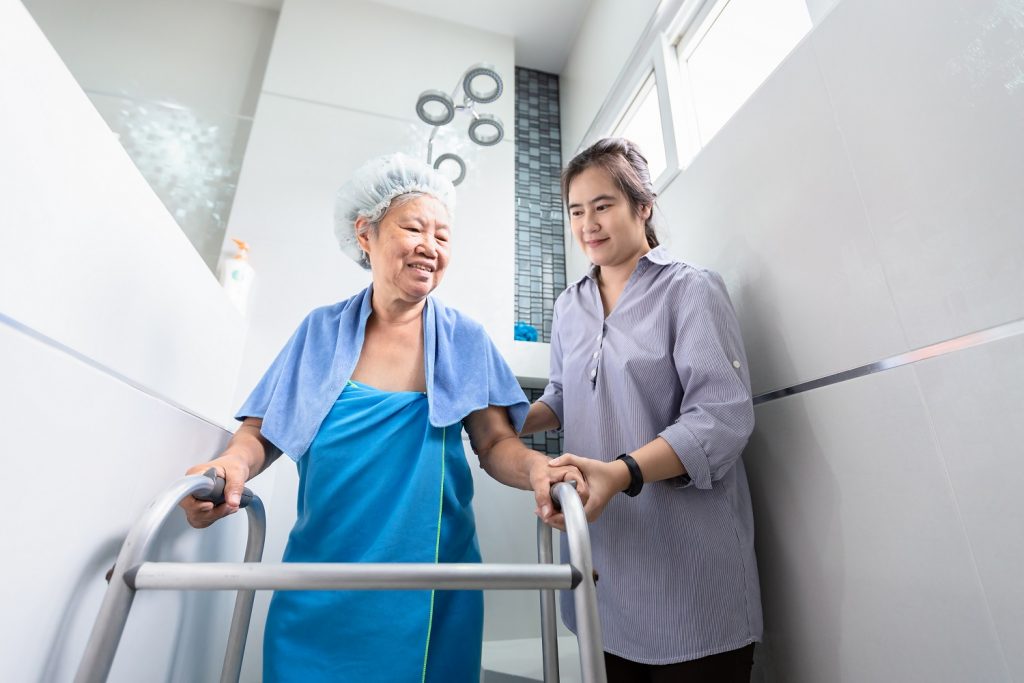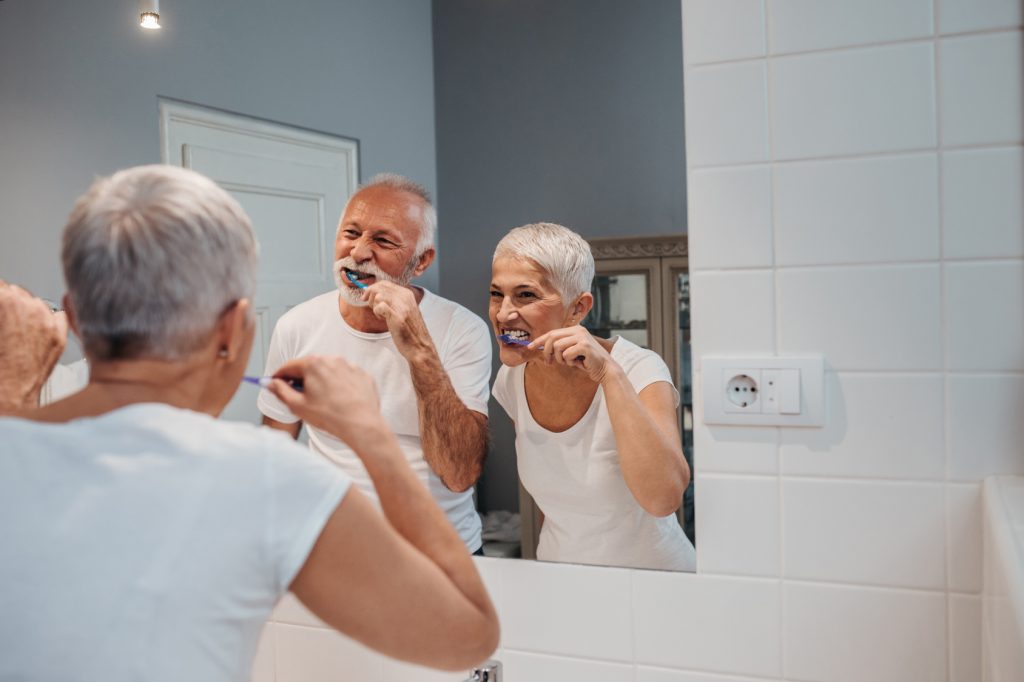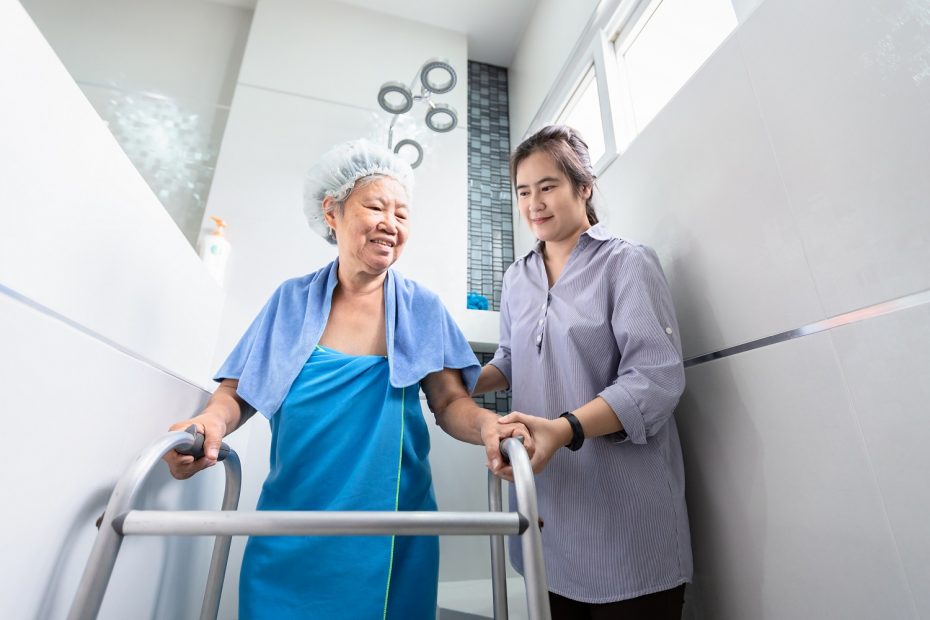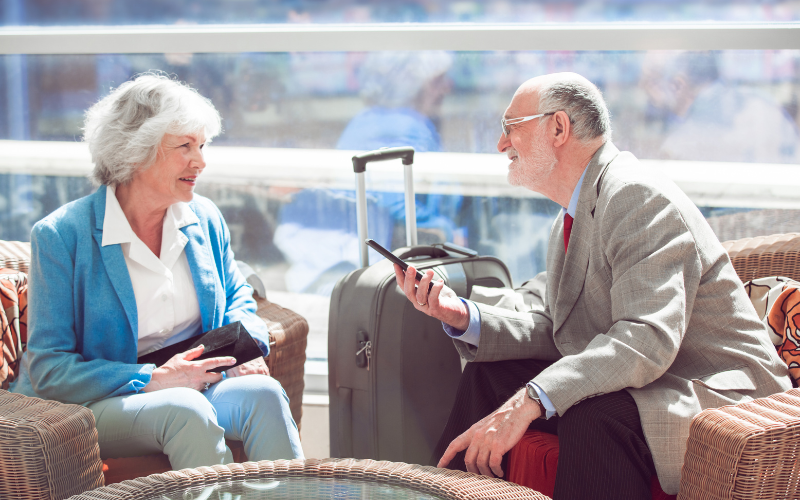Many things factor into a person’s health and well-being, including personal hygiene. People need to keep themselves clean and maintain proper hygiene to stay in good health and prevent germs from spreading. However, it is not always easy for people to maintain good hygiene. This can especially be the case for elderly individuals. As people age and enter their golden years, everyday living might not be as easy as it once was. Seniors tend to have weaker immune systems and less physical strength. Some elderly individuals may even have balance or mobility concerns. All of these things can make it difficult for seniors to maintain good hygiene. If elderly individuals have poor hygiene practices, then they can become ill, get rashes, and suffer from infections among other things. It is not impossible for seniors to practice good personal hygiene. With help and a set checklist to follow, it can be easier for elderly individuals to maintain good hygiene practices. Continue reading for guidance on what to include on a personal hygiene checklist for the elderly.
Bathe and Shower Regularly

Generally, people should bathe and/or shower using mild soap at least every two days. If your loved one has other bathing instructions given to them by a doctor, then follow those orders. When showering, seniors should use a gentle shampoo. Not only will this result in clean hair but also limit the chance of scalp infections. After the shower, elderly individuals should allow their hair to air dry and then comb and style it to their liking. Maintaining good grooming habits can help with self-confidence, so it’s important that seniors have a hairstyle that makes them feel good about themselves. Given the risk of slipping and falling, bathing and showering are among the personal hygiene activities that can be tough for seniors to do on their own safely. But it is important for them to maintain a regular bathing routine. Knowing this, ask your elderly loved one about their bathing habits and whether they feel safe. There are handicap accessible aids that can be installed into bathrooms to help make bathing a safer activity. If they need help from someone, see if any family members are available to help or consider hiring outside help from a home health care service. Home health aides are often hired to assist elderly individuals with their bathing and showering routine.
Maintain Good Oral Hygiene

Tooth decay and gum disease are more common in elderly individuals, so it’s crucial that people maintain good oral hygiene practice as they age. Seniors who have their natural teeth should be brushing them at least twice a day: once in the morning and once at night. Make sure they use a dentist-approved toothpaste as well, and don’t forget to floss daily, too. Seniors with teeth implants, dentures, or other items aside from natural teeth should abide by the cleaning and maintenance instructions given to them by their dentist. For example, dentures need to be rinsed after eating, cleaned on a daily basis, and soaked overnight. If seniors experience any discomfort with their teeth or gums, then they should see their dentist right away. Otherwise, they should visit their dentist for a checkup every six months.
Take Care of Your Skin
Oftentimes, a senior’s skin is thin and dry, which makes it prone to tears and abrasion. This can be particularly uncomfortable, so it’s important to moisturize and practice good skincare. After bathing and showering, elderly individuals should moisturize their skin by applying a hypoallergenic, fragrance-free lotion to their arms, legs, and face. This kind of lotion will ensure their skin gets moisturized but won’t be irritating to their skin. Furthermore, it’s a good idea for seniors to make this lotion application a part of their daily routine, such as after bathing or showering.
Care for Your Nails
Your nails can suffer from fungal and bacterial infections if they are not maintained well. Seniors should wash their hands and toes well to ensure their nails remain clean. Clip your nails regularly so they don’t get too long, and file them so they aren’t too sharp.
Change and Wash Clothes, Bedding, and Other Linens Regularly
If seniors have problems with mobility or dexterity, then it can be tough to change their clothes. But clothes need to be changed at least every 48 hours even if elderly individuals do not bathe daily. If they do have a tough time changing clothes, have them invest in clothes that are easy to get in and out of, such as ones with waistbands and Velcro. These clothes will need to be cleaned regularly. Also consider hiring a caregiver from an elderly care service to help your loved one change clothes if they have a tough time doing so without help. The same goes for bedding, towels, and other linen. You don’t want your loved one using dirty bed sheets or towels, especially because they can experience bacteria and mold growth. Knowing this, change and clean bedding and towels on a regular basis. They might need to be changed daily if seniors are sick or suffering from an infection.
Senior Home Care Help for Your Elderly Loved One
If your elderly loved one cannot safely take care of themselves and maintain good personal hygiene on their own, then Assisting Hands Home Care can help. We provide seniors with home care services in Naperville, IL, in addition to the neighboring areas of North Milwaukee, Ozaukee, and Washington Counties. Our trained and licensed caregivers will provide 24 hour home care or hourly home care catered to senior’s unique care needs, including personal hygiene tasks. With help from our elderly care services, you can have peace of mind knowing that your elderly loved one has the help they need to safely take care of their personal hygiene.
Check out our blog about Bath Products for the Elderly
















